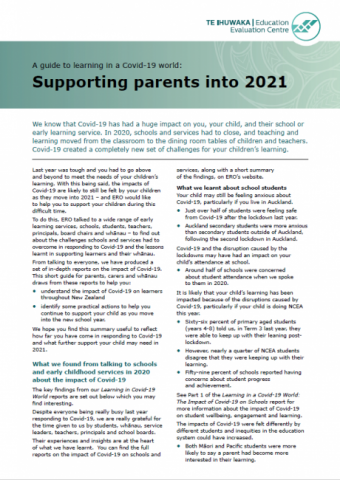Raising achievement in secondary schools
Published: 30 Jun 2014
This report documents the findings of ERO’s 2013 evaluation of how well 40 secondary schools analysed and responded to their NCEA data.
- Audience:
- Education
- Parents
- Schools
- Content type:
- Research
- Topics:
- Raising achievement
- Secondary
- Māori student achievement
















